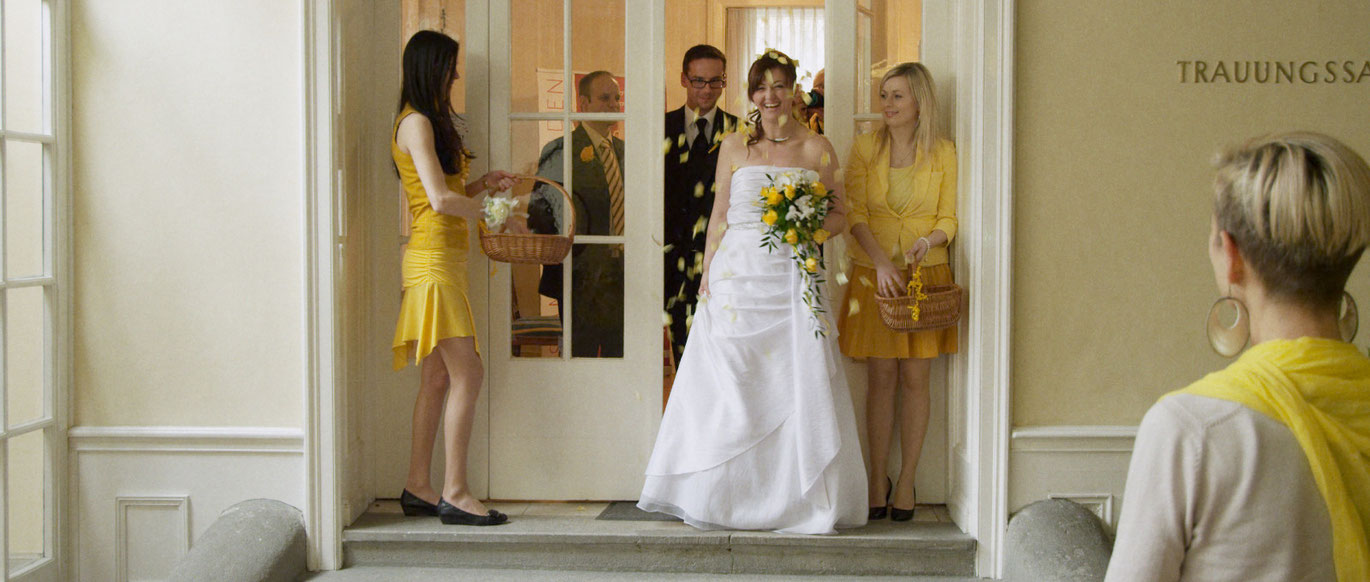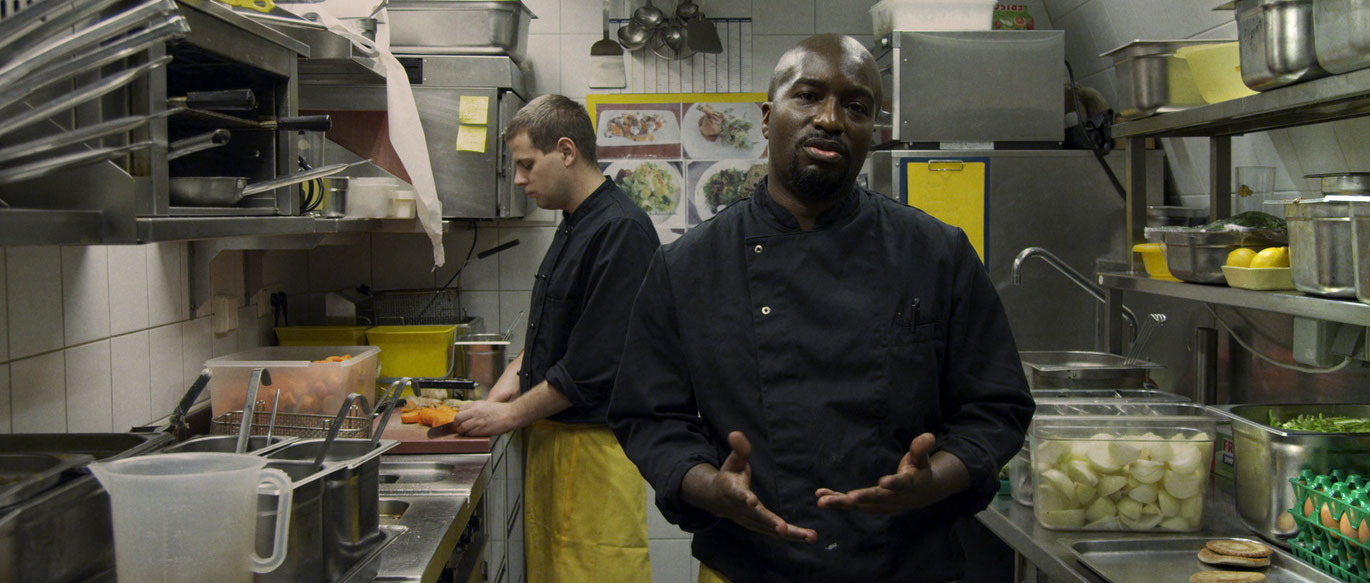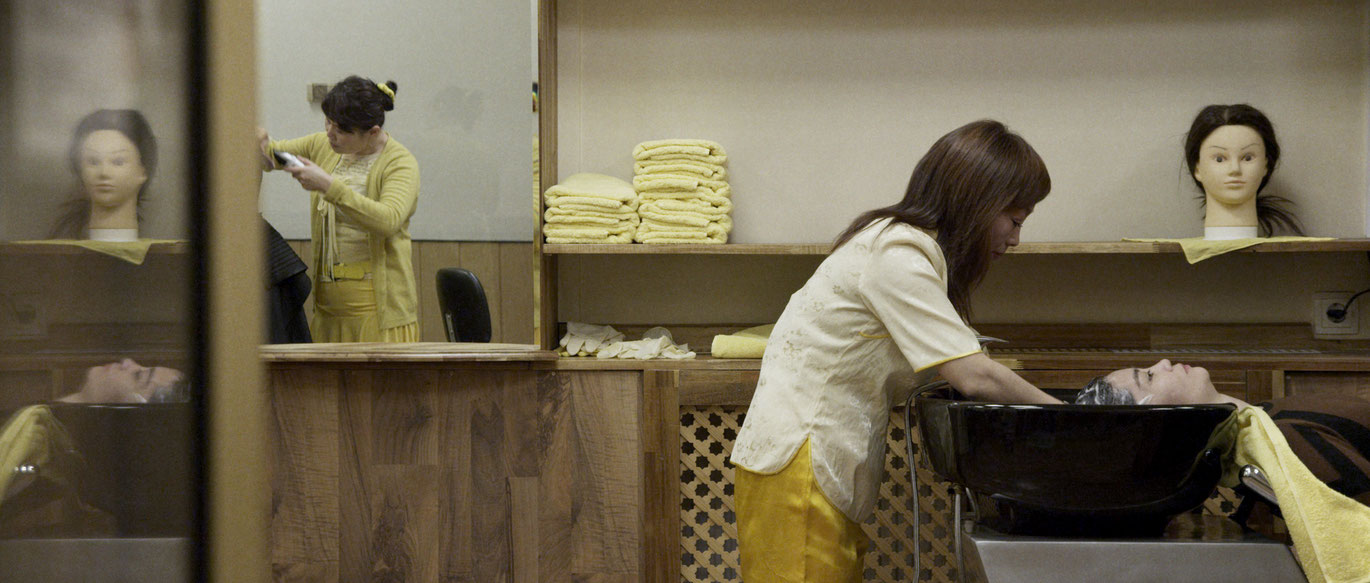The 727 Days without Karamo
Love can cross borders - and sometimes it has to. For 727 days an Austrian woman is separated from her husband after his deportation. A Chinese woman waits longingly for her return to Vienna. Many relationships fall apart because of the vindictive nature of the system. Director Anja Salomonowitz creates an artful document, giving an inside on the reality of many different people living through and thereby telling the same story. A courageous portrait of love in light of one country’s policy on foreigners.
The first shot brings the essence into focus. In the bright, early autumn a couple are spending the afternoon together. Both are dressed in glowing yellow, the woman is waiting a little bored on a bench while her husband, in overalls and an aviator hat, navigates a bizarre flying object up and down and passed obstacles with a humming remote control. One imagines oneself as a spectator in a realm of fiction at the beginning of a story, which has committed to a witty, somewhat absurdly comical tone.
This first image is, however, simply one of Anja Salomonowitz's typical documentary art gags. Interlocking form and content together subtly. What one hears in the 90 minutes that follow is indeed unbelievable, incredible and sometimes absurd. But as unreal as some of the descriptions of the protagonists may sound, none of it is made up.The film draws on the experiences of Austrians who have fallen in love with somebody whose passport was issued in a country outside of the EU's borders. They try to legalise their relationship in the form of a marriage and meet head on with the authorities: Emotions meet regulations, the heart collides with the law, difficulties take their course.
Documentary story-telling is always a dual process: on the one hand her story-telling style aims to address relevant socio-political conditions and raise awareness of intolerable situations and, on the other hand, to expand and vary and create anew the view on a theme with unusual narrative strategies. In THE 727 DAYS WITHOUT KARAMO the filmmaker has further refined her KURZ DAVOR IST ES PASSIERT (IT HAPPENED JUST BEFORE) basic concept for telling a documentary story differently. The material drawn from reality, and its emotional potential, are thereby placed in constant tension with each other.
The filmmaker used the project's long financing phase to have conversations with innumerable binational couples. What crystallised from this was less the colourful spectrum of different romantic scenarios, but rather the parallels and commonalities that formed constellations through couple relationships of differing income categories, age groups and geography: Getting to know one another, the desire to get married, the setbacks that arise and often, ultimately, the failure of a gruelling administrative procedure. As if the greatest common denominator of these individual stories were an almost inevitable basic pattern within the existing legal requirements.
In THE 727 DAYS WITHOUT KARAMO the protagonist's individual stories grow together into a superior love story, told collectively. No story is told to its end, each of the 20 couples interviewed in front of the camera deliver only a splinter of an overall picture that is full of fragments, and also refers to the fragmentation of their lives. Anja Salomonowitz lets the camera tell the story, in on and off-screen scenes, sometimes in conversations, sometimes in whispered voices, sometimes she films the people at home, sometimes at work. Their gestures and actions have nothing to do with the content of what is being said. Whether the camera image is set to on or off can vary within a statement. Every portrait follows a principle of refractions and fragmentation. The fault line is the common thread in a composition for a choir with soloists.
This creates distance and safeguards the affected and the viewer alike from too much emotion. Anja Salomonowitz denies both sides a cinema of pity. Above all, THE 727 DAYS WITHOUT KARAMO wants to tell the story of people fighting for another person and defending their right to choose their partner freely. Therefore the filmmaker (as in her previous films) has chosen a dominant colour in her shots: yellow. For courage and the fighting spirit and contempt. (Karin Schiefer)
Die 727 Tage ohne Karamo
2013
Austria
80 min
Documentary, hybrid
German
English, German



